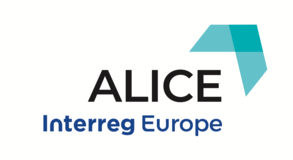Initiated in September 2019, ALICE aims to foster cooperation within the sector at the European level to support the development of a competitive European animation industry. On 10 December 2019 in Liège, Wallimage led the way with its first, much-anticipated stakeholders’ meeting with various actors from the Walloon animation sector. For ALICE, the stakes were high: it was both the first concrete step of the field study and a test of the project’s ability to bring together a group of diverse professionals with different perspectives. The results exceeded expectations. During the meeting, the participants managed to identify two major challenges: access to employment and the attractiveness of the regional sector to workers who have many opportunities worldwide. They began to explore possible avenues for policy changes around these key issues.
The participants at the meeting included producers Belvision and Umedia, the studios Digital Graphics, Dreamwall, Waooh! and Zest Animation, the post-production companies Dame Blanche and Mikros Image, the filming offices Wallimage Tournage, Le Pôle Image de Liège (representing audiovisual service providers), and an observer from the Film Centre of the Wallonia-Brussels Federation.
They all agreed that the issue of young people’s employability cannot be addressed by the school education system alone. Priority should be given to the development of training programs adapted to the realities of the industry. Programs focused on skills training for employment could be designed with the support of public authorities, and ideally coupled with extended student internships and the creation of training grants.
Concerning the attractiveness of the sector and the underlying issue of retaining talent, the stakeholders recognized the pressing need to be able to offer employment conditions measuring up to the level of expertise they most desire. Introducing programs of excellence, selective training courses or exchanges of experts between European studios are possible options to explore. These initiatives would boost individual careers and of the general level of qualification to benefit the profession as a whole.
The stakeholders also stressed the fact that more ambitious projects would help retain talent in the region. Wallonia should be able to initiate ambitious projects, as well as majority co-productions. To do so, the region could leverage its strong know-how and reputation in animation, while specializing further in its fields of expertise, which are animation, storyboarding, modeling, rigging, texturing, cleaning, lay-out and scriptwriting. The creation of a Walloon development fund and an association of animation professionals would support these new ambitions.
As far as qualifications and continuing training are concerned, a list of work to be carried out in the coming months was drawn up during the session. In particular, participants proposed to use the existing nomenclature in France, based on the "Collective Agreement for the Production of Animated Films" to identify and quantify the shortage of jobs in the animation sector. They also planned to draw up a list of the training courses that are already recognized and registered in the National Register of Professional Certification. A collaboration plan for the co-creation of a dedicated nomenclature for animation and special effects within the Puglia region has already been initiated. The next working group on "Training" to be held in Puglia on 28- 29 April will be an opportunity to progress on this topic. Each of the ALICE partners can then reflect on the creation of a job classification grid, leading to the definition of a European nomenclature which would benefit from a European certification in the framework of qualifications for lifelong education and training.
The main takeaways from this first meeting are the willingness of the Walloon stakeholders to exchange with each other, draw inspiration from what already exists elsewhere, and learn from others’ practices to move forward. ALICE’s partners from Catalonia in Spain, the Hauts-de-France region, the Puglia region in Italy, the Rzeszow region in Poland, and the Slovak Republic are already taking action within their own local sectors. They will focus on specific actions over the next three years to cultivate a spirit of cooperation and to encourage a united development of the local and pan-European industries.




